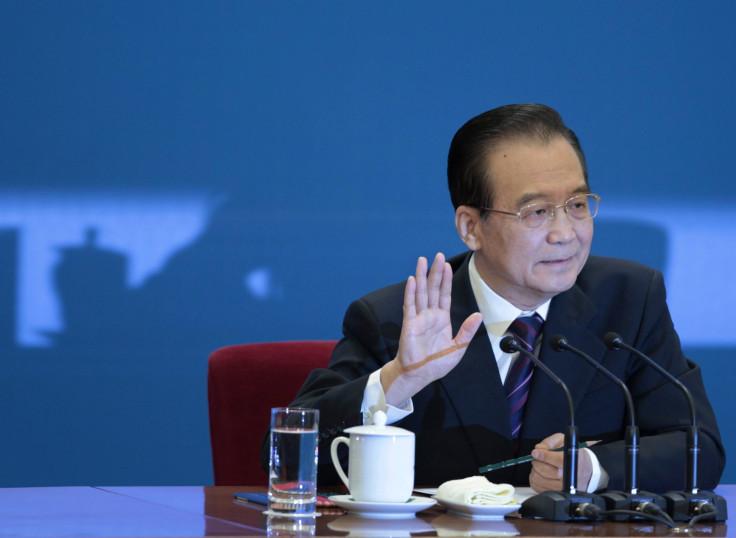After Wen Jiabao Report, China Blocks New York Times Website

China has condemned the New York Times after the newspaper published a report on premier Wen Jiabao’s family’s wealth; the BBC reported that the government called the story a “smear.”
The original New York Times article said Wen’s family has “become extraordinarily wealthy during his leadership” and that many “names of the relatives have been hidden behind layers of partnerships and investment vehicles involving friends, work colleagues and business partners.”
The Chinese Foreign Ministry said the Times was “trying to blacken China’s image and has ulterior motives.”
However, the majority of the Chinese public will not see the New York Times report.
On Friday, China blocked access on the mainland to the newspaper's website as well as blocking specific keywords relating to the story like "Wen Jiabao" and "New York Times" on China’s Twitter-like micro-blogging tool, Weibo.
Additionally, the BBC reported that the BBC World News channel was blocked in China while a correspondent in the country was answering a question regarding the story. Later, the BBC News website was also blocked.
A spokeswoman for the newspaper hopes full access to both the Times’ English and Chinese websites would be “restored shortly.”
As China’s class divide grows between party officials and ordinary people, the government has been particularly aware of any implications being made that suggest officials are unusually wealthy. Though typically a story like this can be swept under the rug without resorting to censorship, the Chinese are especially cautious of any potential unrest among citizens ahead of the 18th National Congress of the Communist Party in November.
The Congress begins Nov. 8 in Beijing and will mark the start of a major leadership transition, which occurs every ten years. To ensure a smooth transition, the government has been vigilant about any bad press on Chinese leaders.
China has always maintained a tight grip on foreign media, censoring anything it considers taboo (the three T's: Taiwan, Tibet, Tiananmen, and the Falun Gong sect) or sees as showing a bad light on China.
Western social media site Facebook and many blogging platforms like Youtube, Tumblr, Blogspot and others have been blocked in mainland China for years. Their Chinese counterparts, Weibo and Youku, have remained, but they are monitored by government censors.
However, the so-called Great Firewall of China is not impenetrable. Using a virtual private network (VPN), as most foreigners in China do, is the most common way for people to gain access to blocked sites. However, average Chinese citizens do not have VPNs.
All foreign television is required to be broadcast through a Chinese satellite dish before hitting the air, creating about a seven-second delay, allowing plenty of time for the government to ‘black out’ television screens.
But it’s not just the government keeping a watchful eye on foreign media. A website called www.anti-CNN.com (which has since been changed to April Media) was created in 2010 by Chinese netizens upset with reports on CNN, and Western media in general, on various banned topics like Tibet and the Dalai Lama.
© Copyright IBTimes 2025. All rights reserved.






















